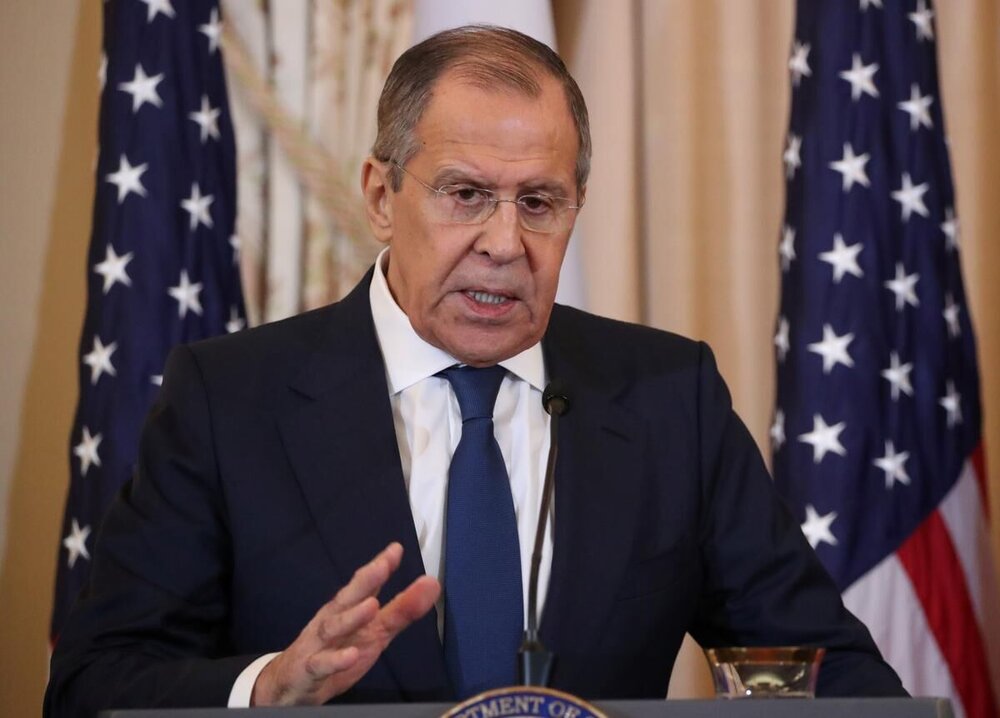Russia says E3 decision on nuclear deal is ‘worrisome’

Russian Foreign Minister Sergey Lavrov said on Friday that the decision adopted by the European Union trio, known as E3, on the 2015 nuclear deal, officially known as the JCPOA, is “worrisome”.
“The three European countries’ decision on the JCPOA and start of the dispute mechanism are worrisome,” IRNA quoted him as saying in a press conference.
He also noted that Iran’s nuclear activities are “transparent”, adding that Iran is being inspected more than any other country.
According to UrduPoint News, Lavrov also suggested to hold a meeting on the JCPOA among its member countries in order to understand the future fate of the agreement.
“I think that it is necessary to hold some kind of meeting [on the JCPOA] in the near future in order to honestly understand the situation and understand who is thinking about what [on the deal],” he said.
France, Germany and the United Kingdom issued a joint statement on Tuesday announcing they have formally triggered the dispute mechanism in the nuclear deal.
Russia’s Foreign Ministry announced on Tuesday that Russia sees no grounds to trigger the dispute mechanism, Reuters reported.
The activation of this mechanism may make it impossible to return to the implementation of the agreement, the ministry said.
UN spokesman Stephane Dujarric said on Tuesday that all parties to the nuclear deal must spare no effort to keep it in place.
“We’re, obviously, aware of what happened this morning, of the joint announcement made by the three and the confirmation made by the EU diplomatic chief. We continue to call on parties to work together to do whatever they can to preserve the JCPOA,” TASS quoted Dujarric as saying.
Foreign Minister Mohammad Javad Zarif said on Tuesday that the Europeans are making a “strategic mistake” by triggering the dispute mechanism.
“Europeans’ action in using the dispute mechanism is baseless from legal point of view and a strategic mistake from political point of view,” he said during a meeting with Niels Annen, a German foreign office minister, in New Delhi.
Zarif also criticized the Europeans’ failure to protect Iran’s interests under in the JCPOA.
U.S. President Donald Trump quit the nuclear deal in May 2018 and introduced the harshest ever sanctions in history on Iran as part of his administration’s “maximum pressure” strategy against Iran.
The European countries failed to protect Iran’s benefits from the deal and after patiently watching for a whole year and seeing no clear action from the European signatories of the nuclear deal, Iran started to partially reduce its commitments.
Iran’s moves are based on paragraph 36 of the JCPOA which “allows one side, under certain circumstances, to stop complying with the deal if the other side is out of compliance.”
Tehran has repeatedly announced it will reverse its decisions once the remaining signatories fulfill their commitments.
On May 8, exactly one year after the U.S. abandoned the deal, Tehran announced that its “strategic patience” is over and began to partially reduce its commitments to the agreement at bi-monthly intervals.
In the first stage, Iran announced that it will not limit its stockpile of the nuclear fuel to 300 kilograms allowed under the deal. On that date (May 8), Iran’s Supreme National Security Council (SNSC) said if the remaining parties to the JCPOA, especially Europeans, devise a mechanism to protect Iran from the sanctions’ effect in the two-month deadline it will reverse its decision.
But since European parties missed the deadline, on July 7 Iran announced that it has started enriching uranium to a higher purity than the 3.67%, thereby starting the second step.
Again, as Europe missed the second 60-day deadline, Iran moved to take the third step, removing a ban on nuclear research and development (R&D).
In the fourth step, which started on November 6, Iran began injecting uranium gas into 1,044 centrifuges at the Fordow nuclear site. It was done at the presence of inspectors from the International Atomic Energy Agency (IAEA).
In its fifth and final step on January 5, Iran suspended all limits under the JCPOA.
NA/PA
Leave a Comment